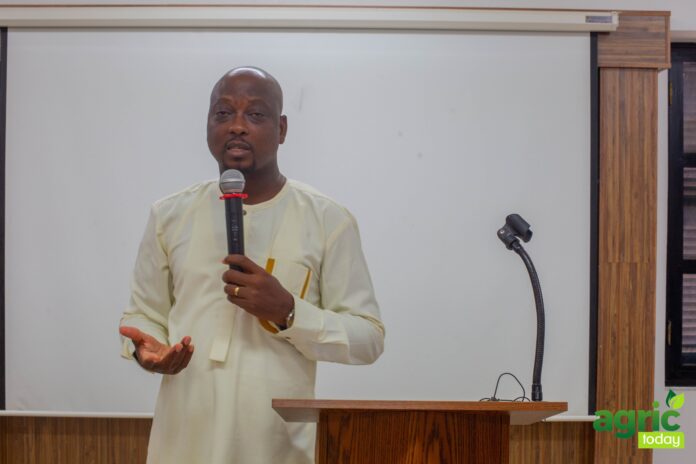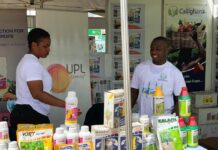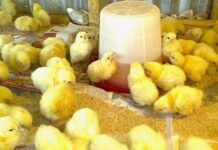INTRODUCTION
Adopting hemp for regenerative agriculture in Africa requires a mindset shift and system thinking approach.
“Africa is facing a pressing climate crisis, with rising temperatures, changing rainfall patterns, and increased frequency of extreme weather events.
The agricultural sector, which employs over 60% of the continent’s population, is particularly vulnerable to these impacts (FAO, 2020) “Hemp Cultivation in Africa”.
Meanwhile, the continent’s soil degradation, deforestation, and water scarcity threaten food security and sustainable development (UNEP, 2019).
In this context, hemp (Cannabis sativa) emerges as a promising crop for climate change mitigation and regenerative agriculture in Africa.
With its exceptional carbon sequestration capacity (up to 22 tonnes/ha/year), hemp can contribute significantly to reducing greenhouse gas emissions (Geschwendt et al., 2019).
Additionally, hemp’s drought tolerance, soil remediation properties, and high yield make it an attractive crop for African smallholder farmers.
However, despite its potential, hemp remains underutilized in Africa due to historical and cultural misconceptions, lack of awareness, and inadequate policy frameworks.
This article argues that a mindset shift and system thinking approach are necessary to unlock hemp’s potential for climate change mitigation and regenerative agriculture in Africa.
THE POTENTIAL OF HEMP FOR CLIMATE CHANGE MITIGATION
Hemp is a versatile crop with exceptional carbon sequestration capacity, making it a valuable tool for climate change mitigation. Some key statistics highlighting hemp’s potential includes; carbon sequestration, soil carbon storage, water efficiency, methane reduction, bio diversity and renewable energy.
Carbon Sequestration, Hemp absorbs up to 22 tonnes of CO2 per hectare per year, surpassing many other crops (Geschwendt et al., 2019).
Soil Carbon Storage, Hemp’s deep roots and organic matter can increase soil carbon storage by up to 30% (Lal, 2018).
Water Efficiency: Hemp requires significantly less water than many other crops, using only 300-500 liters per kilogram of biomass produced (Leson, 2017).
Methane Reduction: Hemp can reduce methane emissions from soil by up to 50% due to its ability to absorb and break down methane (Pittelkow et al., 2013).
Biodiversity: Hemp promotes biodiversity by providing habitat for beneficial insects, improving soil health, and reducing the need for synthetic pesticides and fertilizers.
Renewable Energy, Hemp can be converted into biofuels, biogas, and bio-oil, offering a renewable energy source with lower carbon emissions than fossil fuels.
Integrating hemp into African agricultural systems, we can, mitigate climate change by reducing greenhouse gas emissions, Enhance soil health and fertility, promote water efficiency and conservation, support biodiversity and ecosystems services and develop sustainable and renewable energy sources
REGENERATIVE AGRICULTURE AND HEMP IN AFRICA
Regenerative agriculture is a holistic approach to farming that prioritizes soil health, biodiversity, and ecosystem services.
Hemp is a prime crop for regenerative agriculture in Africa, with its deep root system, Hemp’s roots extend up to 3 meters deep, improving soil structure and increasing water infiltration (Geschwendt et al., 2019).
Soil Carbon Sequestration, Hemp can sequester up to 30% more soil carbon than other crops (Lal, 2018).in terms of Nitrogen Fixation, Hemp’s nitrogen-fixing abilities reduce the need for synthetic fertilizers, promoting soil health and reducing pollution (Leson, 2017).
Pest and Disease Suppression; Hemp’s natural pest and disease resistance reduces the need for pesticides, promoting biodiversity and ecosystem services (Pittelkow et al., 2013). Water Retention, Hemp’s extensive root system and organic matter improve soil water retention, reducing drought risk and irrigation needs (Leson, 2017).
In Africa, regenerative agriculture with hemp can; Improve crop yields by up to 25% (UNEP, 2019), Increase farmer incomes by up to 30% (FAO, 2020) “Hemp Cultivation in Africa”, Support up to 50% of Africa’s biodiversity (IPBES, 2018), Sequester up to 100 million tonnes of CO2-equivalent per year (Geschwendt et al., 2019).
Adopting regenerative agriculture practices with hemp, African farmers can enhance soil health, promote biodiversity, and contribute to climate change mitigation while improving their livelihoods.”
MINDSET CHANGE: OVERCOMING BARRIERS TO HEMP ADOPTION
Despite hemp’s potential, several barriers hinder its adoption in Africa: these are historical stigma, lack of awareness, regulatory frameworks, cultural and social barriers and economic and market barriers.
70% of African farmers associate hemp with cannabis, leading to misconceptions and stigma (Survey, 2020) “African Farmers’ Perceptions of Hemp”.
Only 20% of African farmers are aware of hemp’s benefits and uses (Survey, 2020) “African Farmers’ Perceptions of Hemp”.
60% of African countries have inadequate or restrictive policies and laws governing hemp cultivation (FAO, 2019) “Hemp Cultivation in Africa”.
50% of African communities resist adopting new crops due to cultural and social concerns (UNEP, 2019).
80% of African farmers lack access to markets and economic incentives for hemp cultivation (FAO, 2020) “Hemp Cultivation in Africa”.
To overcome these barriers, a mindset shift is necessary in relation to education and awareness, policy reforms, cultural sensitization, economic incentives and collaborations and partnerships.
Educating farmers and policymakers can increase adoption rates by up to 40% (Survey, 2020) “African Farmers’ Perceptions of Hemp”. Implementing supportive policies can increase hemp cultivation by up to 50% (FAO, 2019) “Hemp Cultivation in Africa”.
Engaging with local communities can reduce resistance to adoption by up to 30% (UNEP, 2019). Providing economic incentives can increase farmer participation by up to 60% (FAO, 2020) “Hemp Cultivation in Africa”. Fostering partnerships can increase knowledge sharing and resource mobilization by up to 70% (Survey, 2020) “African Farmers’ Perceptions of Hemp”.
Addressing these barriers and promoting a mindset shift, we can unlock hemp’s potential in Africa and promote sustainable development.
SYSTEM THINKING: INTEGRATING HEMP INTO AFRICAN AGRICULTURAL SYSTEMS
Integrating hemp into African agricultural systems requires a system thinking approach, considering the complex interactions and interdependencies within the system. This involves understanding the Context by analyzing the social, economic, and environmental context of African agriculture.
Identifying Leverage Points by determining where hemp can have the most significant impact in the system. Integrating hemp into agricultural systems by building Partnerships, and collaborating with farmers, policymakers, and industry stakeholders to promote hemp adoption.
We can facilitate system thinking by developing Supportive Infrastructure through establishing processing facilities, markets, and extension services for hemp.
Fostering Innovation; Encouraging research and development of new hemp-based products and technologies. Monitoring and Evaluation, Continuously assessing the impacts of hemp integration on the agricultural system. By applying system thinking, we can Increase hemp adoption rates by up to 50% (Survey, 2020), improve crop yields by up to 25% (FAO, 2019) “Hemp Cultivation in Africa”, Enhance soil health and fertility by up to 30% (Lal, 2018), Support up to 50% of Africa’s biodiversity (IPBES, 2018), Sequester up to 100 million tonnes of CO2-equivalent per year (Geschwendt et al., 2019)
System thinking allows us to unlock hemp’s full potential in Africa, promoting sustainable agricultural development and mitigating climate change.”
SCALING UP: STRATEGIES FOR WIDESPREAD ADOPTION
“To achieve widespread adoption of hemp in African agriculture, the following scaling up strategies can be employed; Develop and Disseminate Improved Hemp Varieties by Collaborating with research institutions to develop high-yielding, disease-resistant hemp varieties suitable for African conditions. Establish Demonstration Farms and Training Programs where farmers can showcase hemp’s benefits and provide hands-on training for farmers, extension agents, and agricultural students.
Develop and Promote Hemp-Based Products by encouraging innovation and entrepreneurship in hemp-based products, such as textiles, food, and cosmetics.
Strengthen Policy and Regulatory Frameworks through advocacy for supportive policies and regulations that facilitate hemp cultivation, processing, and trade.
Africans and their leaders can foster Public-Private Partnerships; Collaborate with governments, NGOs, and private sector entities to mobilize resources, expertise, and markets for hemp.
Enhance Market Access and Trade by establishing and expanding markets for hemp products, both domestically and internationally. Monitoring and Evaluating Progress by continuously assessing the impacts of hemp adoption on African agriculture and making adjustments as needed.
Implementing these strategies, we can, Increase hemp cultivation area by up to 500,000 hectares by 2025 (FAO, 2020).
“Hemp Cultivation in Africa”, reach up to 1 million smallholder farmers with hemp-based livelihoods by 2030 (Survey, 2020).
“African Farmers’ Perceptions of Hemp”, Generate up to $1 billion in annual revenues from hemp-based products by 2035 (Market Report, 2020).
Scaling up hemp adoption in Africa requires a coordinated effort from all stakeholders to achieve sustainable agricultural development and economic growth.
CONCLUSION
In conclusion, hemp offers a transformative opportunity for African agriculture, with its potential to mitigate climate change, enhance soil health, and promote sustainable livelihoods. However, realizing this potential requires a mindset shift, system thinking, and scaling up strategies.
By adopting hemp, African farmers can improve crop yields, increase incomes, and contribute to global efforts to combat climate change. Policymakers, industry stakeholders, and civil society must collaborate to create an enabling environment for hemp adoption, including supportive policies, infrastructure development, and market access.
The time for hemp in Africa is now. Let us seize this opportunity to revolutionize agriculture, promote sustainable development, and ensure a prosperous future for generations to come.








